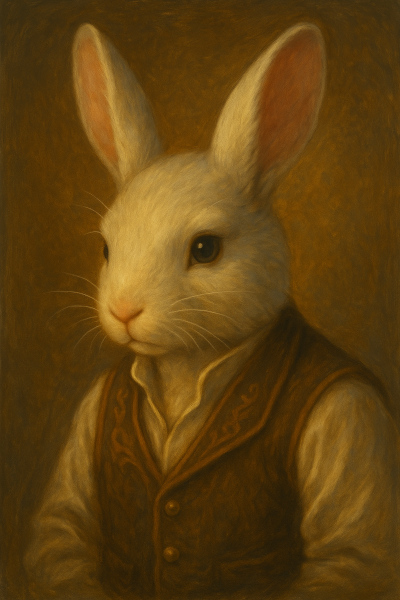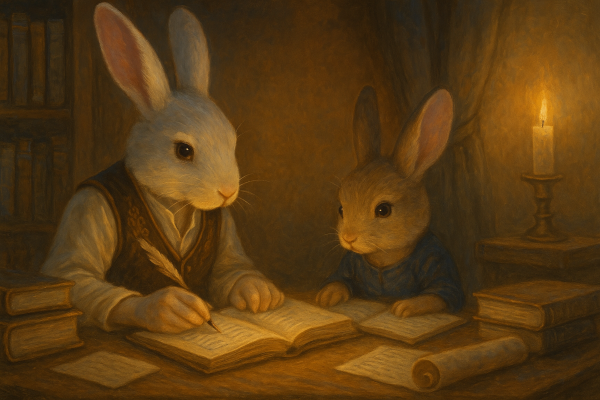Introduction
Harry Potter is a story written by J.K. Rowling, and it has become one of the most influential fantasy series of all time. The first book, Harry Potter and the Philosopher’s Stone, took Rowling five years to complete — yet after its publication, the rest of the series followed in quicker succession, capturing imaginations across the world. While the Harry Potter series excels in immersive world-building and emotionally resonant storytelling, its narrative inconsistencies and unresolved threads reveal a more flawed literary legacy than often acknowledged.
Context & Summary
The Harry Potter series follows the journey of a young boy, Harry Potter, who discovers on his eleventh birthday that he is a wizard. Living in a world full of non-magical people known as Muggles, Harry is invited to attend Hogwarts School of Witchcraft and Wizardry. There, he makes friends, uncovers mysteries, and gradually learns about his connection to the dark wizard Lord Voldemort, the antagonist who killed his parents.
Over seven years at Hogwarts, Harry and his friends face numerous trials. Voldemort, believed to be defeated, slowly regains power. By the fourth book, he is fully revived — setting the stage for the ultimate conflict between good and evil. From that point on, the series builds toward a climactic final battle between Harry and Voldemort, which unfolds in the seventh and final book.
This overview is important context before I examine the story’s biggest strengths and most significant flaws. (And no, we will not be discussing The Cursed Child — that’s a topic for another day.)
Strengths of the Series
The first strength anyone sees when entering the world of Harry Potter is the world-building. The characters, the history, the objects, and the interactions are all so fluently displayed that it feels almost real.
This is shown as early as when Harry gets his first wand, and we learn about Ollivander, the man who creates them. He is an interesting character with a full backstory — his entire family has a history of wand making that goes back hundreds of years before the story began — and he even mentions small details, like Harry’s wand being the twin of Voldemort’s.
The story also features several unique settings and even has a sport called Quidditch, which has actual rules and history. The story always seems to have an unpredictable ending that keeps you curious — a twist that doesn’t kill the story on a second read, but rather gives a new perspective.
The plot is dense and consistently engaging: plotlines are constantly being introduced and resolved, so the story never feels too focused or dull. It doesn’t feel like it follows a rigid set of rules, but rather principles, which allows for interesting shifts in tone and structure. For example, although we usually follow Harry’s perspective, the story occasionally shifts to others, creating dramatic irony.
More importantly, small moments from books ago often have massive consequences later. For example, a certain character in the third book escapes — he seems weak and pathetic — but this leads to a chain reaction that drives the next four books, including the rise of Voldemort and the deaths of many beloved characters.
The characters are also very well fleshed out in a realistic sense. I doubt there is a single main character in the books who is dull — from the narcissistic, pompous attitude of Malfoy, to the kind and wise Dumbledore who has a dark past, and back again to the evil and manipulative Voldemort. The story uses these characters to make you care about what happens and plays with your emotions in all the right ways.
The magic system in the story is a strange mix of abstract concepts and defined laws, so it doesn’t feel like deus ex machina happens too often. But at the same time, it gives characters a way to escape situations that would otherwise be impossible.
Weaknesses of the Series
But now let’s look at some of the flaws in the series, from big to small. The first — and smallest — are minor story breaks and plot inconsistencies: things like the floors of certain classrooms changing from book to book, or the mention of a broom closet that is never brought up again in the series. A lot of these have been fixed over the years.
The next few issues are a bit more pressing, as we get plot holes that either still exist within the story or are only answered outside of it — which is slightly less satisfying. Several examples include: money in the wizarding world being needlessly complex, the point system at Hogwarts being inconsistent, characters possessing objects they shouldn’t have (which have to be explained outside the story), and characters whose wands should have been long gone somehow returning at a moment’s notice. Time travel, while not a plot problem in itself, raises questions about who uses it and when — which is the main issue.
These are just some small examples of the book being highly inconsistent in parts and having numerous plot holes throughout the story. While I did praise the world J.K. Rowling built, there are still unanswered questions. We haven’t seen much outside of Britain, yet Rowling has said a lot about the rest of the world — but mostly outside the books.
The story also includes several ideas that seem outdated and, at times, makes the wizarding society seem totally incompetent. Several relationships in the story fall flat quickly or feel inconsistent. For example, Hermione and Ron’s relationship is built up for almost the entire series, but the payoff feels extremely rushed — basically one kiss and a time skip. Similarly, Harry and Ginny’s romance gets very little development before they’re suddenly together. Even Lupin and Tonks, a pairing that could have been deeply emotional, is barely shown at all.
Several initially weighty ideas lose their significance or are dropped without resolution. These include things like government corruption, the manipulation of the main character’s life by older figures, and the portrayal of people with mental illnesses as burdens on others.
Some characters also feel underused or like their arcs were left unfinished. Firenze, the centaur teacher, starts strong but disappears. Charlie Weasley is mentioned multiple times but never really becomes part of the story. Dean Thomas, a character with a lot of setup, fades into the background by the end. These characters had real potential but got left behind as the plot narrowed toward the main conflict.
Conclusion
Overall, though, I think Harry Potter deserves its title as an amazing book series and earns an 8.7/10 from me.
Final Grade and Comments
-
✅ Graded assignment by
rdd13ron June 26th 2025. A-

